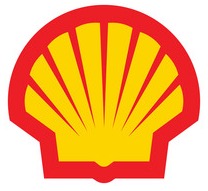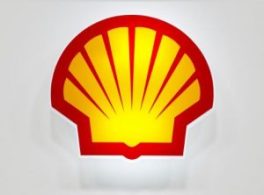


FILE PHOTO: Filled oil drums are seen at Royal Dutch Shell Plc’s lubricants blending plant in the town of Torzhok, north-west of Tver, November 7, 2014. REUTERS/Sergei Karpukhin/File Photo
Ayenat MersieEjigu: 8 FEB 2018
NEW YORK (Reuters) – Oil prices fell to their lowest in seven weeks on Thursday amid fears of rising global supplies after Iran announced plans to increase production and U.S. crude output hit record highs.
Brent futures LCOc1 fell 70 cents, or 1.1 percent, to settle at $64.81 a barrel, their lowest close since Dec. 20.
U.S. West Texas Intermediate (WTI) crude CLc1, meanwhile, was down 64 cents, or 1 percent, to settle at $61.15, its lowest close since Jan. 2.
Both benchmarks fell for the fifth straight day, the longest losing streak for Brent since November 2017 and for WTI since April 2017.
Brent futures have lost as much as 15 percent since hitting a four-year high above $71 in late January. read more
. There is also a




 JANUARY 17, 2020
JANUARY 17, 2020
 By Kevin Crowley: 11 March 2019, 16:16 GMT: Updated on 11 March 2019, 22:56 GMT
By Kevin Crowley: 11 March 2019, 16:16 GMT: Updated on 11 March 2019, 22:56 GMT

 Australia will further cement its top position as the final new project in the pipeline, Royal Dutch Shell’s Prelude, comes online by next year.
Australia will further cement its top position as the final new project in the pipeline, Royal Dutch Shell’s Prelude, comes online by next year.




 Nigeria: Shell’s Oil Spill Dispute With Nigerian Villagers Back in UK Court
Nigeria: Shell’s Oil Spill Dispute With Nigerian Villagers Back in UK Court



 By
By 

 Reuters Staff: MARCH 23, 2018
Reuters Staff: MARCH 23, 2018

 Pump jacks at an oil field near Lost Hills, Calif. (David McNew/Getty Images)
Pump jacks at an oil field near Lost Hills, Calif. (David McNew/Getty Images)
 Forecasters at Royal Dutch Shell, the Anglo-Dutch oil major, have predicted that global oil demand could peak within a decade as electric cars and other clean energy technologies gain larger market shares.
Forecasters at Royal Dutch Shell, the Anglo-Dutch oil major, have predicted that global oil demand could peak within a decade as electric cars and other clean energy technologies gain larger market shares.

 FILE PHOTO: Filled oil drums are seen at Royal Dutch Shell Plc’s lubricants blending plant in the town of Torzhok, north-west of Tver, November 7, 2014. REUTERS/Sergei Karpukhin/File Photo
FILE PHOTO: Filled oil drums are seen at Royal Dutch Shell Plc’s lubricants blending plant in the town of Torzhok, north-west of Tver, November 7, 2014. REUTERS/Sergei Karpukhin/File Photo



















 By
By 



 Sarfaraz A. Khan:
Sarfaraz A. Khan:

























 A fire outage at the largest oil refinery in Europe, a Royal Dutch Shell facility in the Netherlands, is ongoing, driving up prices of oil derivatives.
A fire outage at the largest oil refinery in Europe, a Royal Dutch Shell facility in the Netherlands, is ongoing, driving up prices of oil derivatives.




 By
By 














 y
y 

 Royal Dutch Shell Plc lifted restrictions on exports of a key Nigerian crude oil, 472 days after imposing them following militant attacks. The extra flows alone amount to about 20 percent of the supply OPEC has pledged to cut from world markets.
Royal Dutch Shell Plc lifted restrictions on exports of a key Nigerian crude oil, 472 days after imposing them following militant attacks. The extra flows alone amount to about 20 percent of the supply OPEC has pledged to cut from world markets.























 Royal Dutch Shell conspired directly with Hitler, financed the Nazi Party, was anti-Semitic and sold out its own Dutch Jewish employees to the Nazis. Shell had a close relationship with the Nazis during and after the reign of Sir Henri Deterding, an ardent Nazi, and the founder and decades long leader of the Royal Dutch Shell Group. His burial ceremony, which had all the trappings of a state funeral, was held at his private estate in Mecklenburg, Germany. The spectacle (photographs below) included a funeral procession led by a horse drawn funeral hearse with senior Nazis officials and senior Royal Dutch Shell directors in attendance, Nazi salutes at the graveside, swastika banners on display and wreaths and personal tributes from Adolf Hitler and Reichsmarschall, Hermann Goring. Deterding was an honored associate and supporter of Hitler and a personal friend of Goring.
Royal Dutch Shell conspired directly with Hitler, financed the Nazi Party, was anti-Semitic and sold out its own Dutch Jewish employees to the Nazis. Shell had a close relationship with the Nazis during and after the reign of Sir Henri Deterding, an ardent Nazi, and the founder and decades long leader of the Royal Dutch Shell Group. His burial ceremony, which had all the trappings of a state funeral, was held at his private estate in Mecklenburg, Germany. The spectacle (photographs below) included a funeral procession led by a horse drawn funeral hearse with senior Nazis officials and senior Royal Dutch Shell directors in attendance, Nazi salutes at the graveside, swastika banners on display and wreaths and personal tributes from Adolf Hitler and Reichsmarschall, Hermann Goring. Deterding was an honored associate and supporter of Hitler and a personal friend of Goring.

 Deterding was the guest of Hitler during a four day summit meeting at Berchtesgaden. Sir Henri and Hitler both had ambitions on Russian oil fields. Only an honored personal guest would be rewarded with a private four day meeting at Hitler’s mountain top retreat.
Deterding was the guest of Hitler during a four day summit meeting at Berchtesgaden. Sir Henri and Hitler both had ambitions on Russian oil fields. Only an honored personal guest would be rewarded with a private four day meeting at Hitler’s mountain top retreat.


















 IN JULY 2007, MR BILL CAMPBELL (ABOVE, A RETIRED GROUP AUDITOR OF SHELL INTERNATIONAL SENT AN EMAIL TO EVERY UK MP AND MEMBER OF THE HOUSE OF LORDS:
IN JULY 2007, MR BILL CAMPBELL (ABOVE, A RETIRED GROUP AUDITOR OF SHELL INTERNATIONAL SENT AN EMAIL TO EVERY UK MP AND MEMBER OF THE HOUSE OF LORDS: 



























 MORE DETAILS:
MORE DETAILS:













































































 A head-cut image of Alfred Donovan (now deceased) appears courtesy of The Wall Street Journal.
A head-cut image of Alfred Donovan (now deceased) appears courtesy of The Wall Street Journal.




































































